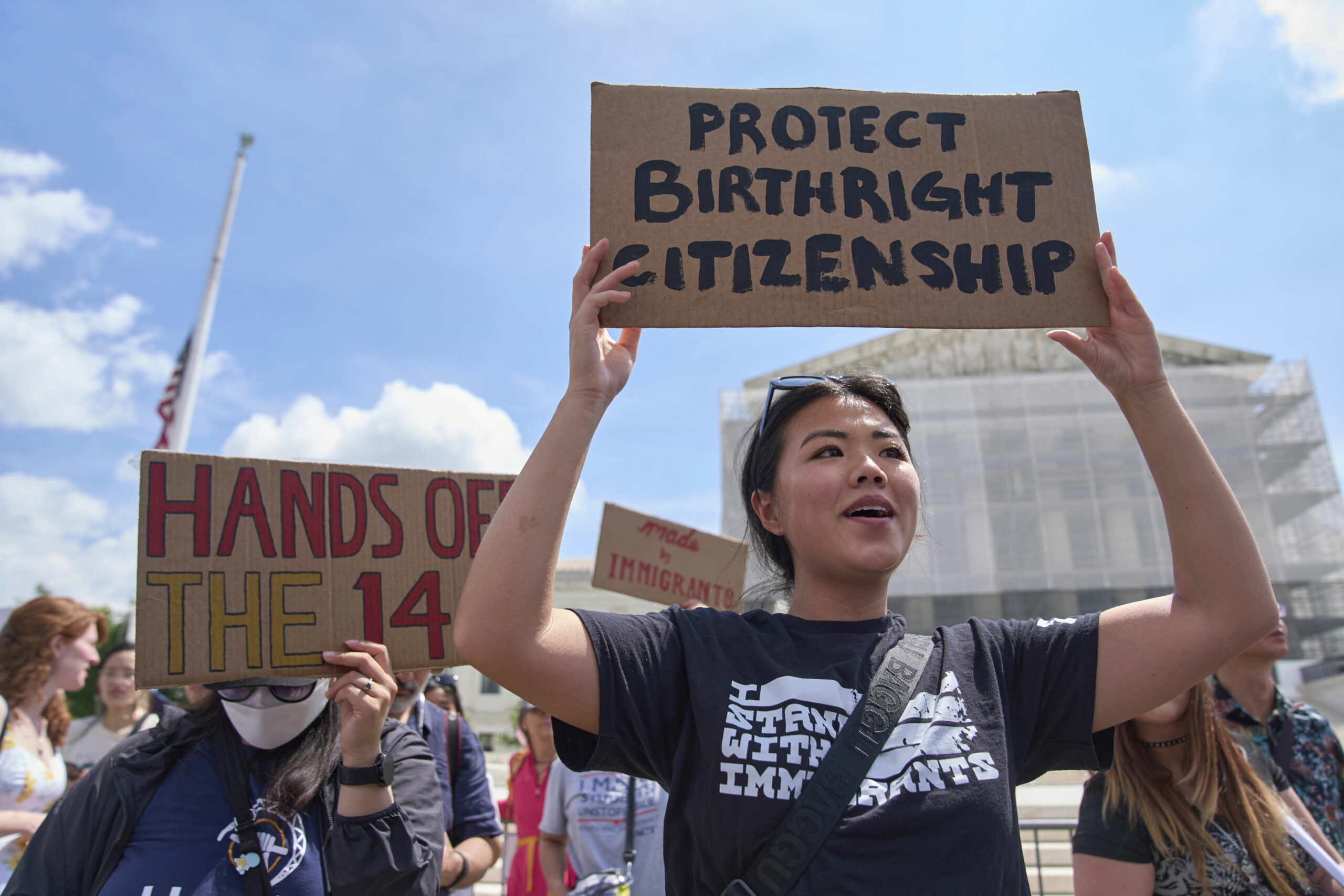WASHINGTON — A federal appellate court decided on Wednesday that President Donald Trump’s directive aimed at ending birthright citizenship is unconstitutional, supporting a previous court ruling that prevented its implementation across the country.
A decision made by a three-judge panel from the 9th U.S. Circuit Court of Appeals follows the blocking of Trump’s plan by a federal judge in New Hampshire. This moves the matter one step nearer to being reviewed swiftly by the Supreme Court.
The 9th Circuit ruling maintains a halt on the Trump administration’s attempt to implement a policy that would prevent children of individuals in the U.S. unlawfully or temporarily from obtaining citizenship.
“The district court accurately determined that the Executive Order’s suggested interpretation, which would deny citizenship to numerous individuals born in the United States, is against the Constitution. We completely concur,” the majority stated.
The 2-1 decision upholds a ruling by U.S. District Judge John C. Coughenour in Seattle, who prevented Trump from ending birthright citizenship and criticized the administration’s attempt to bypass the Constitution for political reasons.
The White House and the Department of Justice did not promptly reply to requests for statements.
The Supreme Court has later limited the ability of lower court judges to issue rulings that apply across the entire nation, referred to as nationwide injunctions.
However, the 9th Circuit majority determined that the case was covered by one of the exceptions remaining open to the justices. The case was initiated by a group of states that claimed they required a national ruling to avoid issues arising from birthright citizenship being the law in only part of the country.
“We determined that the district court did not overstep its authority by granting a broad injunction to provide the States with full relief,” wrote Judge Michael Hawkins and Ronald Gould, both appointed by President Bill Clinton.
Judge Patrick Bumatay, appointed by Trump, expressed disagreement. He concluded that the states lack the legal authority or standing to file a lawsuit. “We should handle any demand for widespread relief with honest skepticism, keeping in mind that claiming ‘full relief’ isn’t a way to obtain broad injunctions,” he stated.
Bumatay did not comment on whether terminating birthright citizenship would be lawful.
The 14th Amendment’s Citizenship Clause states that anyone born within the United States or who becomes a naturalized citizen, and is under U.S. legal authority, is considered a citizen.
Attorneys from the Department of Justice claim that the phrase “subject to United States jurisdiction” in the amendment suggests that citizenship is not automatically granted to children simply because they were born in the country.
The states—Washington, Arizona, Illinois, and Oregon—claim that the interpretation overlooks the clear wording of the Citizenship Clause and a significant 1898 Supreme Court case, in which the court determined that a child born in San Francisco to Chinese parents was a citizen due to being born on American territory.
Trump’s directive claims that a child born in the United States does not automatically become a citizen if the mother lacks legal immigration status or is present in the country on a temporary basis, and the father is not a U.S. citizen or lawful permanent resident. Nine legal challenges against this directive have been initiated across the country.



